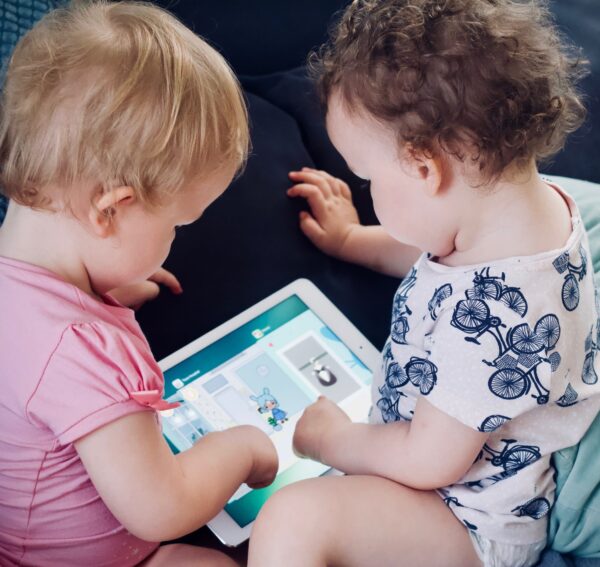G8 Education pilots digital literacies program

Nineteen G8 Education early learning services around Australia have been expanding their digital citizenship through their involvement in a digital literacy pilot program, designed for children in the four year old kindergarten program.
The digital literacies@play program supports early childhood teachers (ECTs) to use digital literacies in open-ended and play-based ways to elevate children’s voices and make their learning visible.
Delivered with support from Apple Professional Learning the program aims to empower young children as competent and capable digital citizens.
“We have taken time to carefully consider how best to incorporate technology into early learning, to support children for digital technology use in schools and as contemporary digital citizens,” said Ali Evans, Head of Early Learning and Education at G8 Education.
The pilot program enables the use of digital technologies in collaborative and creative ways to support children’s digital safety and their smooth transition to school.
“Technology use with young children can be a sensitive and predominantly an under-researched area, so we are taking small steps to develop this pilot program in line with Early Childhood Australia’s Statement on young children and digital technologies and the recent updates to the Early Years Learning Framework,” Ms Evans added.
The technology used within the program is another tool for teaching and learning and is shared amongst the children promoting collaboration and sharing of resources and the project has been specifically designed around the principles of “open-ended and play-based learning” where children use technology as a tool together in an active and creative way.
ECTs at each of the pilot sites have been trained to build their confidence and capability to use the digital technologies with children in appropriate ways, and the technology used in the pilot is an extension of existing program delivery extending on children’s learning, development and wellbeing.
“One of the concerns of some families and teachers is that having iPads in the learning environment could lead to inappropriate use, however this program actively teaches children elements of digital safety and using technology in meaningful ways,” Ms Evans explained, making explicit the intent of the program to use technology to create, not consume.
Each iPad has been loaded with apps, she continued, which were carefully chosen to be play-based, support the concept of open-ended learning and creativity, and to be available for free so families can also use the same apps at home, on tablets or on phones in readiness for the typical use of technology in the first years of formal schooling.
Terese Griffith is an Apple Professional Learning Specialist who supports ECTs in the program, and said the partnership not only helps children to engage with digital technology in readiness for formal schooling but also to engage in a way that supports their cognitive development.
Consent is a core component of the pilot program, saying “one of the first lessons in using technology is to teach the concept of consent”.
Children learn to use the camera and the video functions but must first ask permission from another child if they are happy to be in the video or picture and how it will be used and shared.
In addition to the camera functions, apps such as ChatterPix Kids, Draw and Tell, Kaleidoscope Drawing Pad, AR Makr and WWF Forests have been used to extend learning and empower children to share their learning.
ECTs in the pilot program have all reported positive engagement with the introduction of technology into play-based learning, and families have been supportive of the considered introduction of digital tools.
“We draw the distinction between ‘screen time’ and ‘screen use’. It’s a principle we share with families,” Ms Evans explained.
“The in-class iPads are used to extend learning for around 10 to 15 minutes for specific learning experiences by children, some days they are not used at all,” she continued.
“Each child is different in wanting to use the iPad and it’s not mandatory for all children to use it.”
G8 Education intends to keep investigating the use of digital literacies to explore a whole new world with the support of Apple Education.
Popular

Policy
Practice
Provider
Quality
NSW Government launches sweeping reforms to improve safety and transparency in early learning
2025-06-30 10:02:40
by Fiona Alston

Quality
Provider
Policy
Practice
WA approved provider fined $45,000 over bush excursion incident
2025-07-01 07:00:01
by Fiona Alston

Workforce
Policy
Quality
Practice
Provider
Research
ECEC must change now, our children can’t wait for another inquiry
2025-07-02 07:47:14
by Fiona Alston













